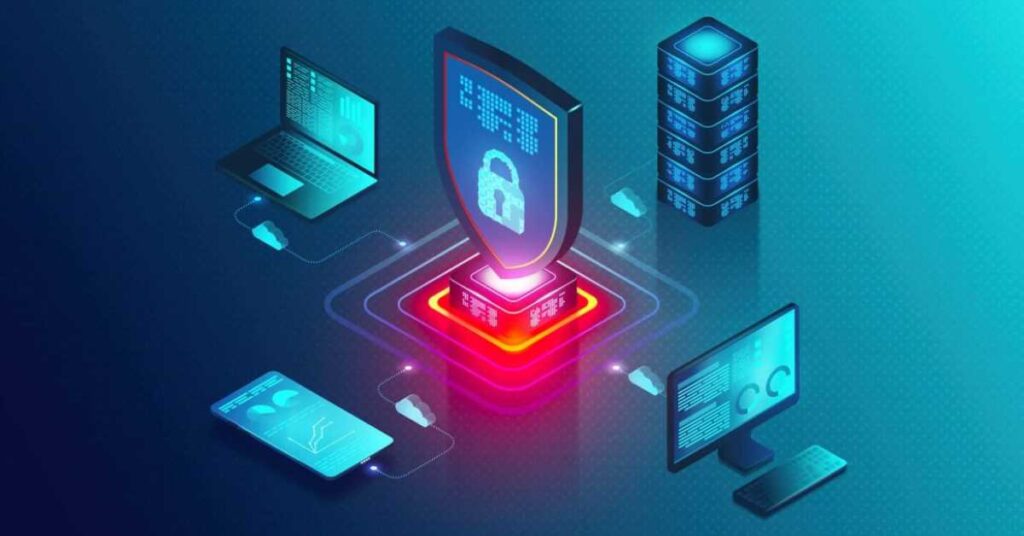Email: [email protected]


In today’s digital landscape, cybersecurity is crucial for modern businesses. As technology advances, cyber threats multiply, posing risks to sensitive data, financial stability, and reputation. Businesses must prioritize robust cybersecurity measures to safeguard against data breaches, ransomware, phishing, and malicious activities.
Effective cybersecurity is a necessity to protect assets, maintain customer trust, and stay competitive. Implementing comprehensive strategies can prevent financial losses, ensure regulatory compliance, and foster resilience.
This article explores the importance of cybersecurity in modern business, covering latest threats, best practices, and innovative solutions to stay ahead in the era of heightened vulnerability.
Cybersecurity is essential for businesses to safeguard sensitive data from unauthorized access, theft, or damage. This includes financial information, personal employee data, customer records, and intellectual property. Sensitive data is a prime target for cybercriminals, who may use it for malicious purposes, such as identity theft or financial fraud.
A robust cybersecurity system ensures that sensitive data is encrypted, secure, and accessed only by authorized personnel. This protection prevents data breaches, financial losses, and reputational damage, maintaining customer trust and loyalty. By prioritizing sensitive data protection, businesses can minimize cyber risks and ensure their reputation remains intact.
Cybersecurity plays a vital role in preventing financial losses for businesses. Cyber-attacks can result in significant financial costs, including stolen funds, intellectual property theft, and damage to digital assets. Additionally, businesses may face fines and legal fees associated with data breaches. Cybersecurity measures, such as firewalls and encryption, help prevent these financial losses by detecting and blocking malicious activity.
By investing in cybersecurity, businesses can avoid costly downtime, reputational damage, and financial fraud, ensuring their financial stability and continuity. Effective cybersecurity strategies can save businesses millions of dollars in potential losses.
A cyber-attack can severely damage a business’s reputation, leading to a loss of customer trust and loyalty. Cybersecurity measures help protect a company’s reputation by preventing data breaches, cyber-attacks, and other security incidents that can harm its image. By prioritizing cybersecurity, businesses demonstrate their commitment to protecting sensitive information, maintaining customer confidence, and upholding their reputation.
A strong cybersecurity posture helps businesses build trust with customers, partners, and investors, ensuring long-term success and growth. Effective cybersecurity strategies can mitigate reputational damage, reducing the risk of financial losses and reputational harm.
Cybersecurity is critical for businesses to comply with various regulations and industry standards. Laws like GDPR, HIPAA, and PCI-DSS require companies to maintain specific cybersecurity measures to protect sensitive data. Non-compliance can result in significant fines, legal action, and reputational damage.
Cybersecurity measures help businesses comply with these regulations by implementing data encryption, access controls, and incident response plans. By prioritizing cybersecurity, companies can avoid legal and financial consequences, ensuring they meet regulatory requirements and maintain customer trust. Staying compliant also enhances a company’s reputation and helps attract customers and partners.
Cybersecurity plays a crucial role in protecting a business’s intellectual property (IP), including patents, trademarks, copyrights, and trade secrets. Cybercriminals often target companies to steal sensitive IP information, which can be used to gain a competitive advantage or sold on the dark web. Cybersecurity measures, such as encryption and access controls, help prevent unauthorized access to IP data.
This ensures that businesses can maintain their competitive edge and prevent financial losses resulting from IP theft. By protecting IP, companies can also avoid legal disputes and reputational damage, safeguarding their innovation and creativity.
Click on the next page button to continue enjoying the article!












To provide the best experiences, we and our partners use technologies like cookies to store and/or access device information. Consenting to these technologies will allow us and our partners to process personal data such as browsing behavior or unique IDs on this site and show (non-) personalized ads. Not consenting or withdrawing consent, may adversely affect certain features and functions.
Click below to consent to the above or make granular choices. Your choices will be applied to this site only. You can change your settings at any time, including withdrawing your consent, by using the toggles on the Cookie Policy, or by clicking on the manage consent button at the bottom of the screen.
